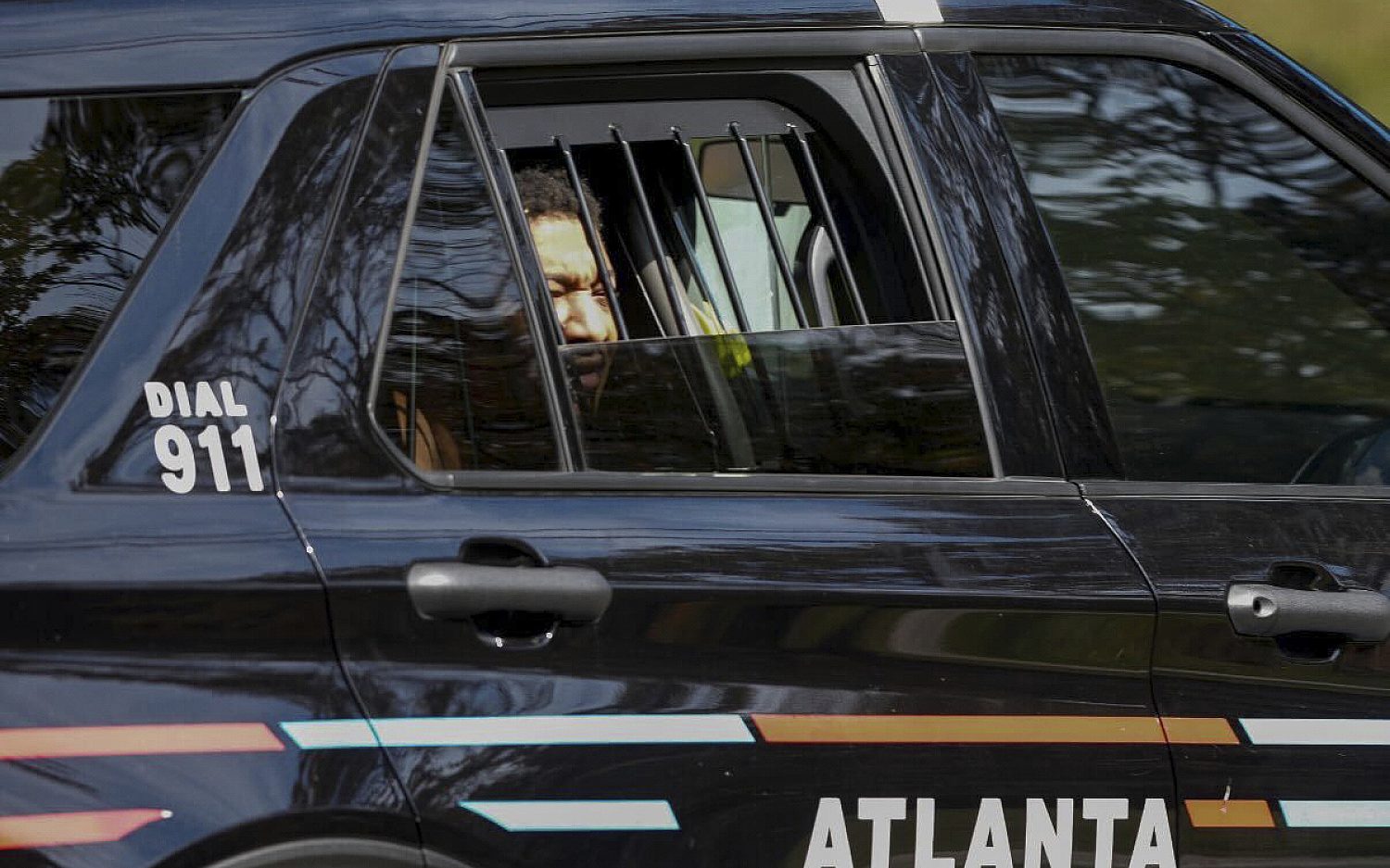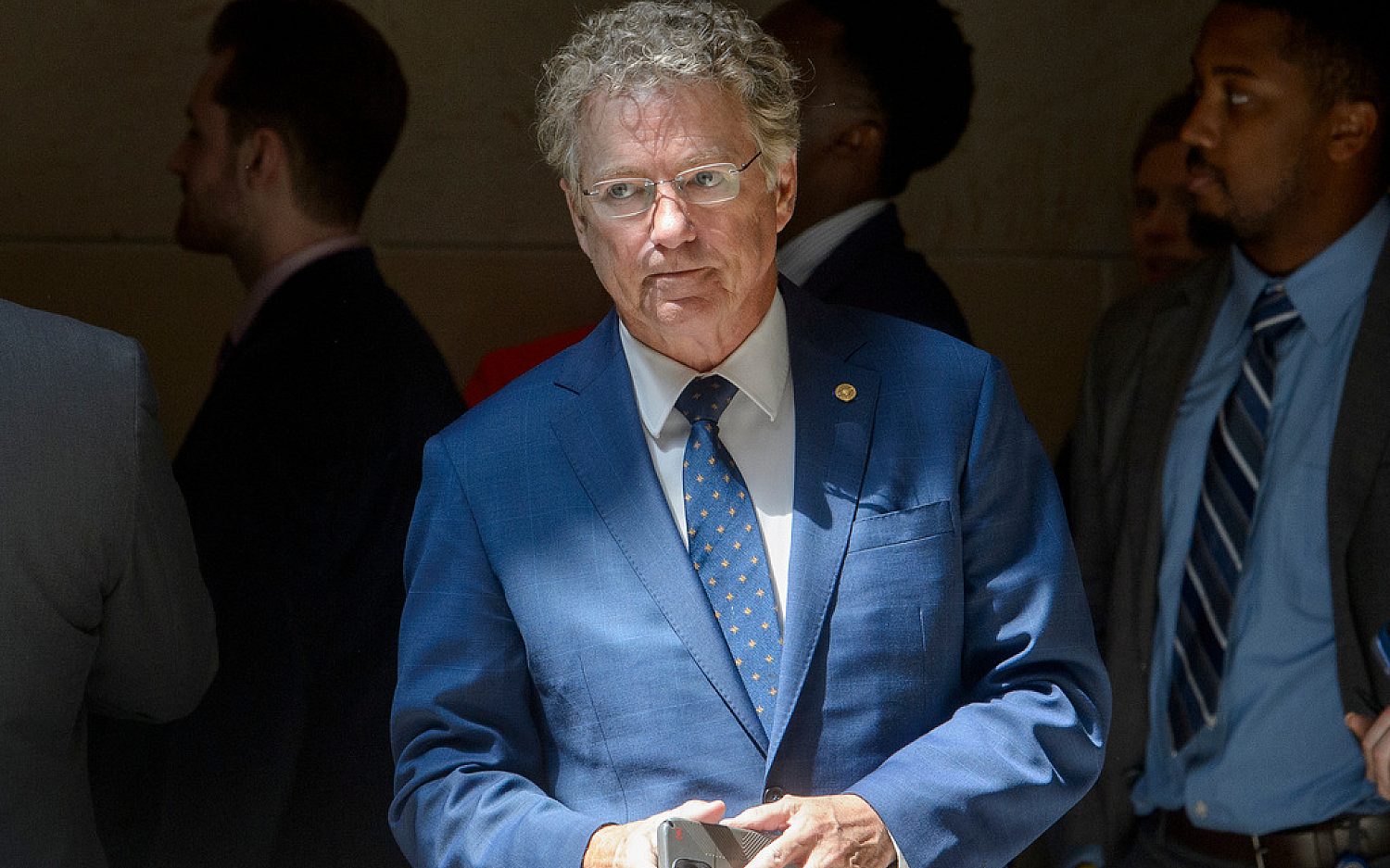CCCU decision day looms
Board faces critical moment in council history as it considers membership of schools that hire faculty in same-sex marriages
WASHINGTON—The eyes of the Christian higher education world are on the Council for Christian Colleges and Universities (CCCU) board as it faces what many consider the biggest challenge in the organization’s 40-year history.
Since July, the board has conversed with each CCCU president to discuss the membership status of Eastern Mennonite University (EMU) and Goshen College, after the two schools announced in July they would change their hiring policies to include faculty and staff in same-sex marriages. The board will announce its decision on Monday.
Taylor University professor Bill Ringenberg, a leading Christian higher education historian, said the current controversy is unlike anything the CCCU has ever faced.
“The [same-sex marriage] issue has traumatized Christian higher education—even more so than it has society in general,” said Ringenberg, author of The Christian College: A History of Protestant Education in America. He said the only bigger dilemma came between 1920 and 1960, when many Christian schools secularized: “That was a crisis of greater magnitude.”
The CCCU formed in the 1970s following that decades-long trend of secularization. A small group of schools came together in common commitment to Christ-centered education, including mutual collaboration in student, faculty, and administration programs, and to defend their right to hire only professing Christians as full-time faculty members. Today the council has grown to 121 members and 61 affiliates worldwide.
The decision
In broad terms, the council has three main options: leave EMU and Goshen as full members, move them to affiliate status, or remove them from the council completely. According to member presidents who have spoken to WORLD, the board has recommended the second option.
For years the council has offered affiliate status for institutions that didn’t meet full membership criteria. Often schools used it as a way station as they moved toward membership (examples: Regent and Charleston Southern universities), but over time some schools that became eligible were content to stay affiliates. In response, the council created three distinct affiliate types: international affiliates, theological affiliates, and affiliate members. The third group would be the likely destination for EMU and Goshen.
Affiliate members pay minimal membership dues and do not have voting rights. They’re often affiliates because they do not offer “comprehensive undergraduate curricula rooted in the arts and sciences” (examples: The King’s College and Arizona Christian University) or they do not employ only Christian faculty (examples: Baylor and Pepperdine universities). While some see this category as a natural fit for EMU and Goshen following their hiring policy changes, others—citing 1 Corinthians 5—believe it’s preferable to allow professed unbelievers than professing Christians who are living in what the church has for 2,000 years classified as a sinful lifestyle.
Some observers have distilled the controversy into a battle over ideological purity for lobbying purposes, but presidents say it’s more than that. The council’s collaborative programs mean schools must be willing, for example, to send their students to a shared program that could include students from schools that hold to a different view on biblical sexual ethics. For administrators, a CCCU conference on LGBT issues—such as the one it held in Chicago earlier this year—will not start from the same baseline of agreement.
The CCCU has maintained that the ongoing deliberative process is a discussion about what it means to be a member, not a theological poll. But numerous presidents who spoke with WORLD are not making the same distinction. They’re considering whether “marriage is at the heart of the gospel”—as Union University said when it left the council last month—or whether it’s an important secondary issue behind things like the death, burial, and resurrection of Christ.
Even if marriage is a secondary issue, does disagreement prevent associations? It depends on whom you ask.
CCCU board member Derek Halvorson, president of Covenant College, said there’s “no question” where Covenant stands on the issue of marriage, but involvement in the council could still be useful.
“The CCCU is not a church or denomination,” Halvorson said. “One of our biggest priorities is to ensure that Christian colleges and universities can continue to fulfill their mission in the United States.”
EMU’s standing as a founding member of the council only adds to the complexity of the decision. Former EMU president Myron Augsburger served as the CCCU’s third president (1988-1994), and current EMU president Loren Swartzendruber is a CCCU board member (he has recused himself from the ongoing membership discussions).
According to the council’s official application for membership, the board can only change an institution’s status to affiliate if it fails to comply with all CCCU membership criteria. But EMU and Goshen maintain they’re still in compliance with the criteria, including hiring only professing Christians, so the board will have to articulate a reason for demoting them. Regardless of the outcome, the CCCU is about to set a critical precedent.
The aftermath
So far Union University and Oklahoma Wesleyan University, both citing a slow process and unsatisfactory direction, are the only two schools to withdraw. Other institutions say a move to affiliate status would be unacceptable and plan to leave immediately, but it remains unclear whether that number would rise above a handful.
The answer may hinge on how the CCCU board nuances its expected affiliate decision. Some are waiting to see whether the board differentiates between affiliates headed toward full membership and those who want to make common cause on a limited range of issues.
For schools like The King’s College—which is not a full member only because it doesn’t have the requisite number of majors—adding EMU and Goshen as affiliate members would further cloud a pool that already includes schools that do not hire only professing Christians.
“The affiliate category seems to be problematic in this respect, because it is a mixed bag of different kinds of institutions,” Greg Thornbury, The King’s College president, told me in an email.
Several presidents, including Halvorson, said they would withhold final judgment until the board issued its decision. Halvorson said Covenant’s board would discuss the issue at its October meeting. (Disclosure: WORLD founder Joel Belz is a Covenant College board member.)
“We’re not in a rush,” Halvorson said. “I will certainly want the wisdom of the elders to bring to bear on this issue.”
How many schools consider leaving may also hinge on which ones move first. Union’s departure was notable because it is the oldest Baptist institution in the country and its former president, David Dockery, is a former CCCU board chair. Many saw Union as a bridge between conservative, Southern schools and some of the moderate, northern schools. Its departure has put pressure on other Baptist schools—just as Oklahoma Wesleyan’s withdrawal put pressure on fellow Wesleyan institutions.
Wheaton and Westmont colleges may be the most important to watch, since they are the only two CCCU institutions U.S. News & World Report ranks in the top 100 national liberal arts colleges (Nos. 57 and 93). Both are influential members of the Christian College Consortium, the parent organization that founded the CCCU in 1976.
Ringenberg said it would be “devastating” for the council if any one of the consortium schools left the CCCU. Consortium members hold five of the CCCU’s 12 board seats, and as founding institutions, they have a significant influence on the organization’s overall direction. The other 11 consortium members include Asbury University, Bethel University, George Fox University, Gordon College, Greenville College, Houghton College, Malone University, Messiah College, Seattle Pacific University, Taylor University, and Trinity International University.
Several consortium institutions declined to speak on the record, but others expressed support for the CCCU process, including Dockery, now president of Trinity International, and David King, president of Malone. King, who plans to advise his board to remain in the council, said he’s concerned about the implications if more schools decide to separate.
“Christian higher education is served better if we are represented by a single voice,” King said. “It gets complicated quickly if we see an erosion of that critical mass.”
An actual newsletter worth subscribing to instead of just a collection of links. —Adam
Sign up to receive The Sift email newsletter each weekday morning for the latest headlines from WORLD’s breaking news team.





Please wait while we load the latest comments...
Comments
Please register, subscribe, or log in to comment on this article.